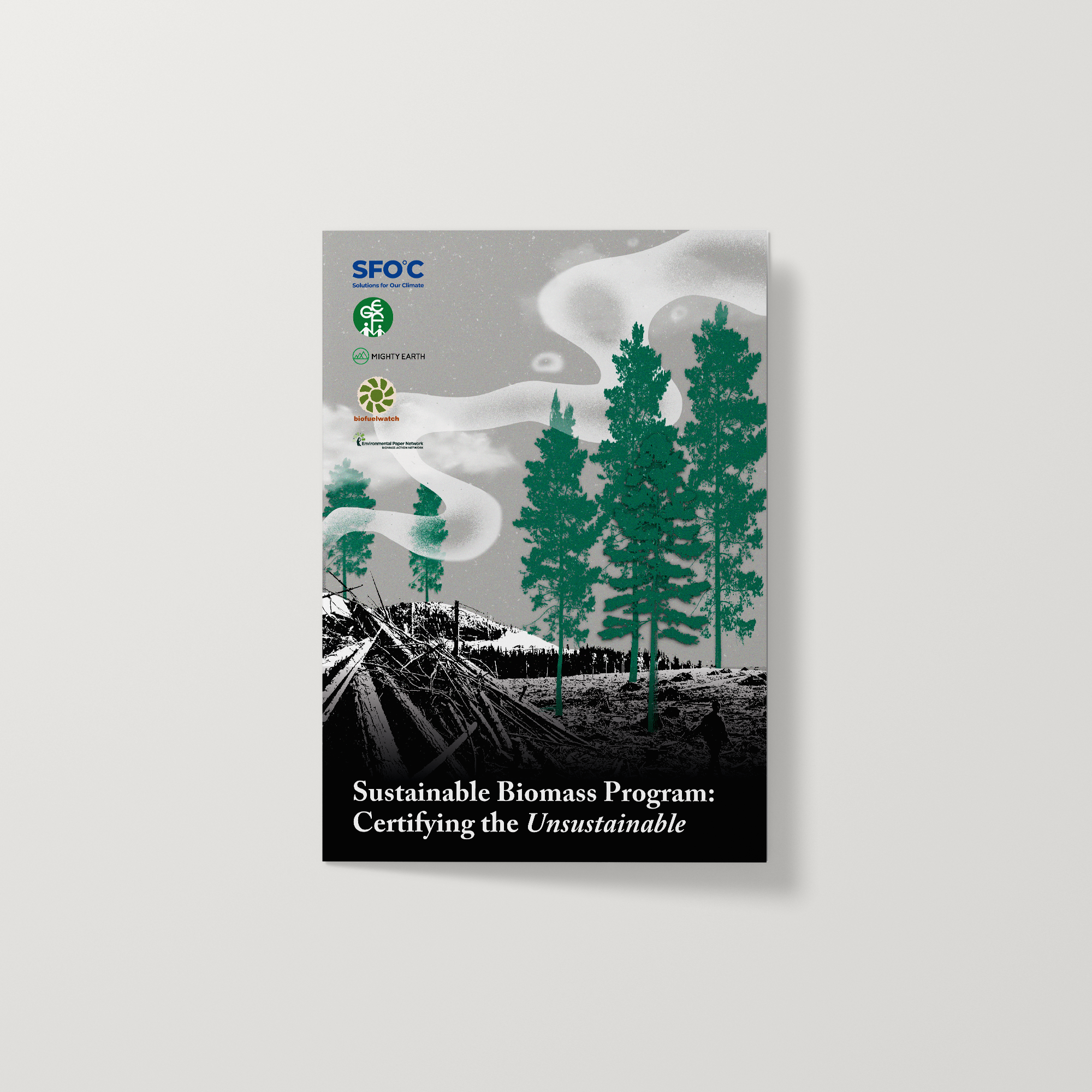Court dismissed appeal to remove renewable credits for controversial biomass energy
Case closed without consideration of biomass-led climate change and deforestation
Judiciary is our last resort to hold government policy accountable, SFOC urges
On July 26, South Korea’s Seoul High Court ruled against the solar cooperative that filed a lawsuit in May last year against the Ministry of Trade, Industry and Energy to remove the Renewable Energy Certificate (REC) weightings for biomass power generation. According to the verdict delivered to the plaintiff on August 1, the Court ignored the responsibility to address biomass energy, which has long been criticized as ‘fake renewables’ for burning forests for fuel.
Under South Korea’s Renewable Portfolio Standard (RPS), biomass has received higher REC weightings than solar and onshore wind. This has made burning wood the second-largest source of renewable energy in the country despite ample evidence that it emits massive amounts of carbon dioxide (CO2) and destroys standing forests. With a specific judgment on biomass energy notably absent in the ruling, the Court dismissed the case on the grounds that the solar business plaintiff lacked the standing to file the suit.
This ruling dealt a severe blow to South Korea’s climate action which already has been criticized for incentivizing biomass power. Since 2015, over 3.7 billion USD worth of RECs have been poured into biomass, burning 50 million tons of wood and emitting 70 million tons of CO2. Latest climate and forest science estimates that such emissions will elevate the atmospheric CO2 levels for decades to centuries, closing the already narrow time window we have left for climate change response.
Mr. ShinYoung Chu, Attorney-at-Law from ELPS who represented the case, expressed concern that the Court's passive judgment effectively blocked the opportunity to challenge the illegality of the administrative branch’s decision-making in the REC weightings. "South Korea’s New and Renewable Energy Act establishes provisions for creating the REC market and ensuring fairness, supply and demand control, and price stabilization thereof. Despite this basis, it is regrettable that the Court dismissed the case instead of recognizing the plaintiff’s standing to challenge the rationality of REC weightings,” he said.
The illegality of biomass REC weightings was also raised in 2020, leading to constitutional complaints; however, the Constitutional Court dismissed the cases at the preliminary review stage based on standing, just like this recent administrative suit. By failing to address the core issues raised in the complaints, the court abandoned its role as a mediator in climate change response.
The series of dismissals contrasts with global trends responding to the climate crisis, where the judiciary is increasingly seen to play a key role in protecting the constitutional rights of its citizens. Especially in the energy sector, a significant contributor to greenhouse gas (GHG) emissions, where many executive decisions of the government cannot be readily swayed by the legislative branch or civil society, the judiciary must serve as the final check on flawed policies.
For instance, the UK Supreme Court revoked approval for an oil development project last June, citing it did not assess Scope 3 emissions from burning the oil along the value chain. In April, the European Court of Human Rights (ECHR) ruled that the Swiss government violated the rights of elderly women by failing to adequately address the climate crisis.
The world is increasingly moving away from burning forests for power. Australia has excluded biomass sourced from native forests from eligible renewable energy in 2022; this June, the Netherlands announced it would eliminate subsidies for all biomass energy. The goals of halting and reversing forest loss agreed upon at the United Nations Framework Convention on Climate Change and reducing harmful subsidies under the Convention on Biological Diversity all point to the end of forest biomass.
The South Korean government should not take this ruling as justifying its indiscriminate biomass policy. The appellate court did not assess the environmental impact of biomass but only determined the standing to file the lawsuit. By eliminating the subsidies for biomass at this year’s revision of REC weightings, South Korea must put an end to the longstanding debate on whether to support this false climate solution.
ENDS.
By Hansae Song, Forests & Land Use Program Lead, Solutions for Our Climate (SFOC)
Solutions for Our Climate (SFOC) is an independent nonprofit organization that works to accelerate global greenhouse gas emissions reduction and energy transition. SFOC leverages research, litigation, community organizing, and strategic communications to deliver practical climate solutions and build movements for change.
For media inquiries, please reach out to Kate Kalinova, Communications Officer, at kate.kalinova@forourclimate.org.
Share this insights









![[Webinar] International webinar on enhancing due diligence of forest risk commodities' supply chains in Asia](https://content.sfoc.tapahalab.com/images/research/sjGudme.jpg)



![[토론회] 한국형 녹색분류체계(K-Taxonomy), 무엇이 녹색경제활동인가](https://content.sfoc.tapahalab.com/images/research/bn8jdme.jpg)






